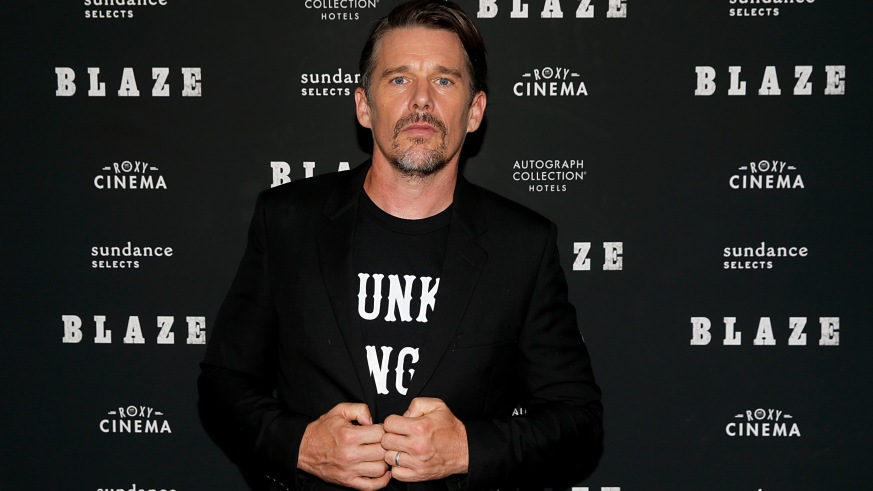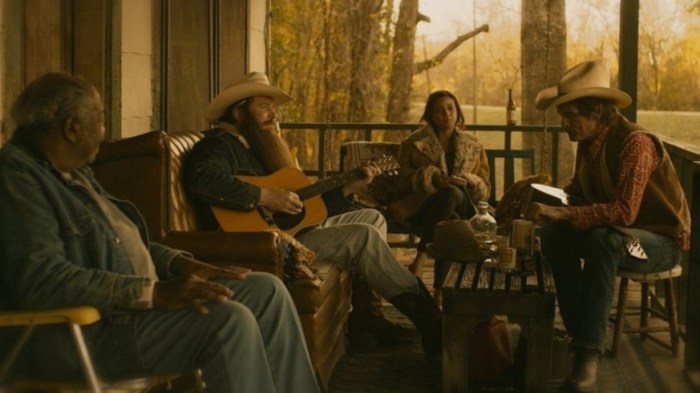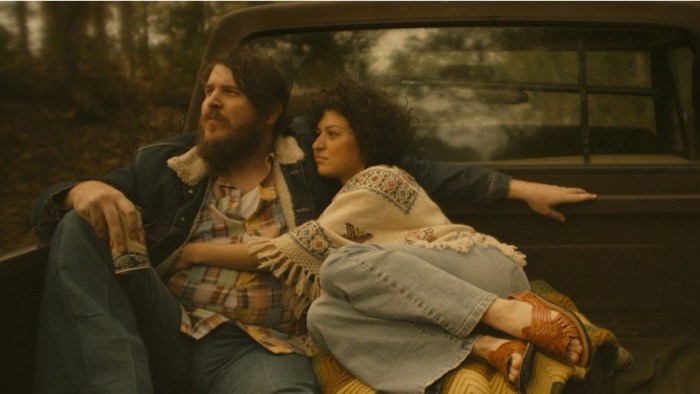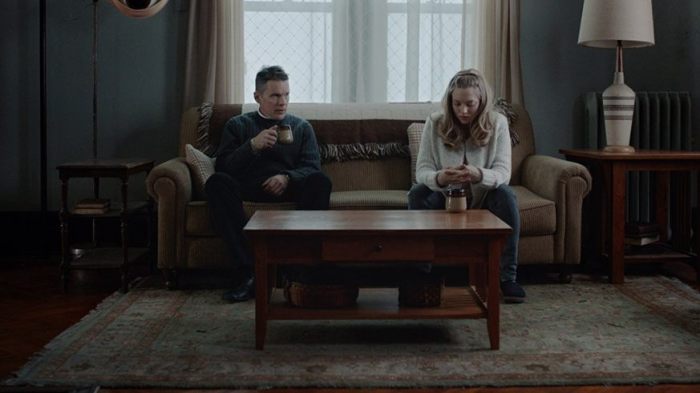Ethan Hawke didn’t set out to do just another biopic about a famous musician when he decided to direct ”Blaze.” Instead, he wanted to create a flick that paid tribute to struggling artists by honoring one of country music’s unsung heroes.
The film centers around Blaze Foley, the late country singer-songwriter who frequently collaborated with Townes Van Zandt and crafted timeless tunes which have been covered by everyone from John Prine to Michael Cera, however, he never reached mainstream success. Foley’s life was hampered by issues with alcoholism, and was tragically cut short after his friend’s son shot him in the chest in 1989.
“Everybody already knows the music, so you’re giving them a reheated version of a meal they’ve already eaten,” Hawke says of biopics like “Walk the Line” or “Ray.” “With ‘Blaze,’ for about 98 percent of the audience, it’s all new music, and it’s new music that’s already stood the test of time, which is really exciting.”
Hawke co-wrote the film with Sybil Rosen, Foley’s former lover who penned the novel “Living in the Woods in a Tree: Remembering Blaze.” “Arrested Development” star Alia Shawkat plays Rosen in “Blaze,” while musician and Hawke’s friend Ben Dickey plays Foley, his first real acting gig which is already garnering a ton of acclaim.
Dickey was confident he could pull off the role because of his musical background, as he found many similarities between the worlds of music and acting, particularly when it comes to the interplay and shared rhythm of the people involved. Dickey also credits Hawke and Shawkat for filling him with the confidence to perform as an actor, as well as Vincent D’Onofrio, who directed Dickey, Hawke and Chris Pratt in the film “The Kid.”
“They were so generous to me and letting me know that they thought I could pull it off,” Dickey tells Metro. “Vincent D’Onofrio spent some time with me and really shook off any preconceptions that I might have had of what acting is and what acting isn’t.”
Ahead of Hawke’s trip to Boston for screenings and Q&A sessions at the Coolidge Corner Theatre on Friday, we caught up with Hawke to chat about the film, his thought son the Hub and more.
Ethan Hawke talks ‘Blaze’

You’re no stranger to the Boston area. How excited are you to be back in town?
Ethan Hawke: I don’t know exactly why, but as soon as this offer came up, I looked at it. I’ve done a few events in my life in Boston with book tours or various film events, and the audiences are always so interesting. I’ve always loved coming up there. It’s like one of the few cities that still cares about the arts, whatever it is, whether it’s music, movies, books – people really care about it. It feels apart of the culture and it’s fun to come up there.
As someone who’s had so much success in a variety of mediums, do you feel a responsibility to tell the stories of unsung heroes like Blaze Foley and help up-and-coming artists like your pal Ben Dickey?
Ethan Hawke: I think I do feel that way. I was thinking that the night Blaze was shot and killed, I was filming “Dead Poets’ Society.” Our journeys were so different. So many doors have opened for me through my life, and spending the last 30 years in and around the arts, you see so many people where doors are closing in front of them for so many different reasons having nothing to do with their talent or abilities, kind of the arbitrariness of luck and how society treats people in all its various forms. I think I do feel a responsibility for it.
How do you relate to Blaze’s struggles as an artist?
Ethan Hawke: The struggle for authenticity, for being authentic and being able to live with yourself and like yourself, and still put yourself forward, is really difficult. There’s a thing about Blaze and Townes that’s interesting which is, nobody doubts their authenticity, but it came at a real high price. It’s a dance between their unwillingness to pimp themselves, combined with true self sabotage. Everybody wants it to be one or the other, but in truth, I think they’re both true.
We live in a culture where everybody is about selling and everybody is about accumulation of wealth. There’s something refreshing to be around somebody that doesn’t buy into that. In a lot of ways, “Seymour: An Introduction,” the doc I made, is in a lot of ways a very similar movie.
“Blaze” deals with a lot of heavy subjects, from gun violence to addiction. What are your thoughts on the timeliness of the film?
Ethan Hawke: There’s something that I’ve been feeling that our culture has been getting more and more antiseptic and more pasteurized. I miss sloppiness and the messiness and the soulfulness that really was apart of the music and movies of my youth. You can smell “One Flew Over the Cuckoo’s Nest.” You can taste “Five Easy Pieces.” It’s like a great Aretha Franklin song or something. For lack of a better word, it’s human. You feel the sweat of it all, the pulse of it. I wanted that in a movie and I felt that could be timely that young people are being made to feel that they have to be perfect all the time and achieve so many different things. You have to be a good mom and you have to be a working mom. And you have to be in great shape and you can’t spend too much time on the phone – but you better get your work done. We create these recipes where you actually can’t feel good about yourself, because you can’t be all of that. No one can. I wanted to speak a little bit to the messiness of life and sing a blues song, basically.
























